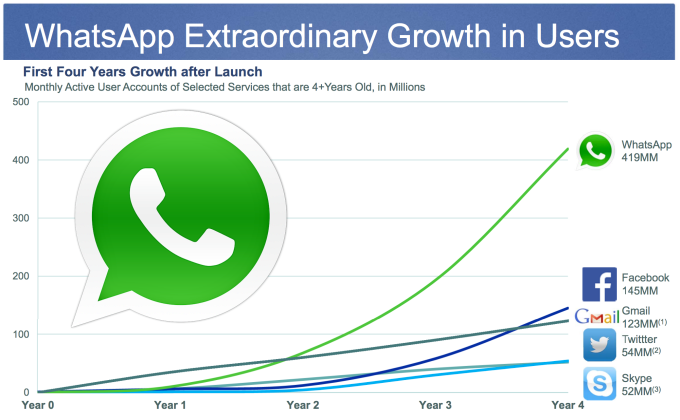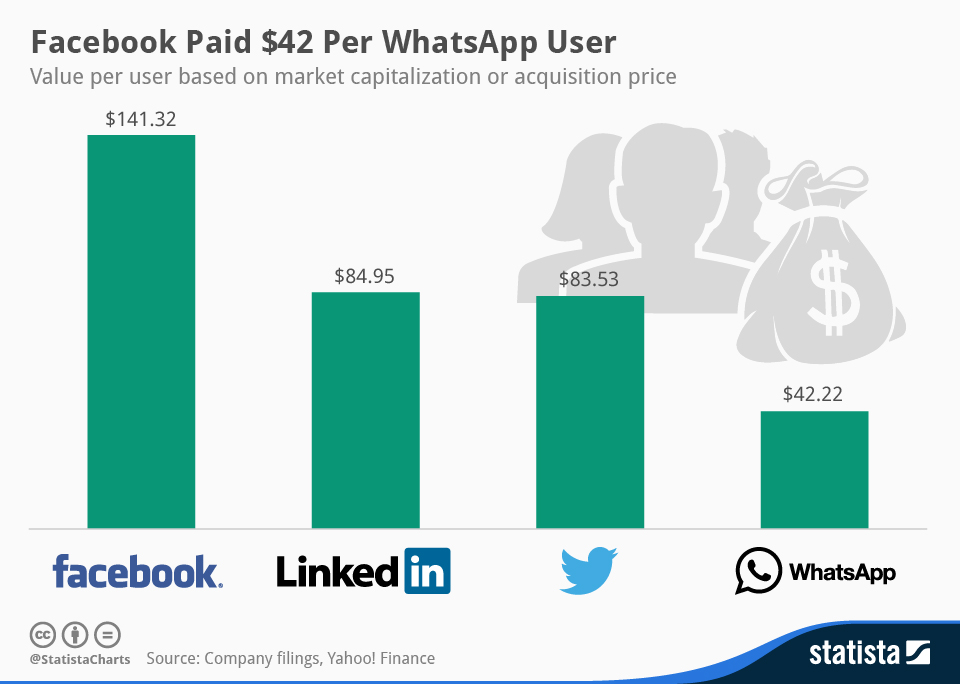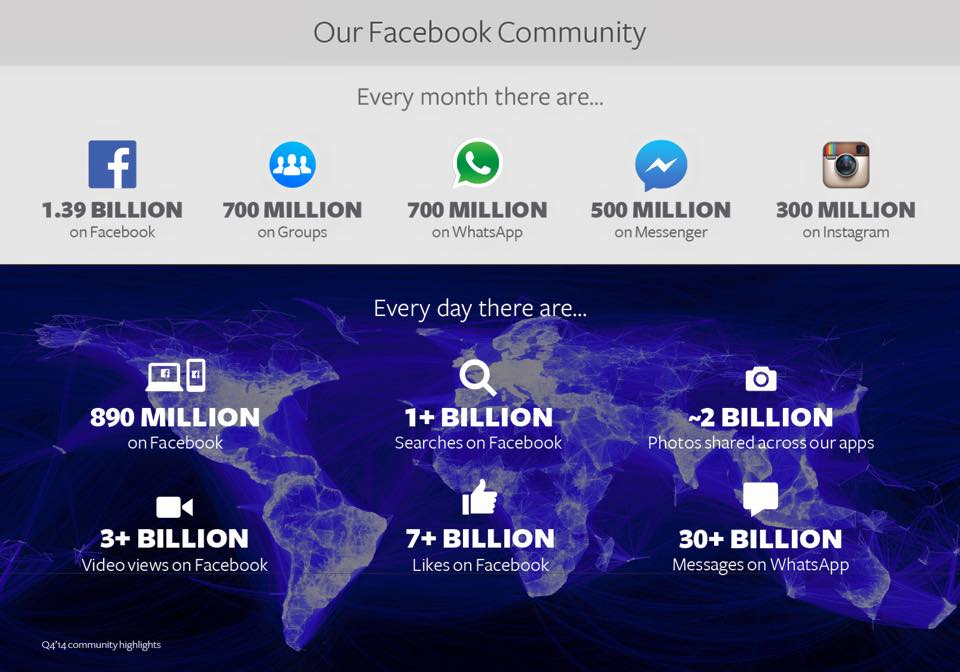The most astounding thing about WhatsApp is the numbers associated with it. The statistics prove that WhatsApp is far more than just a messaging solution; it is a potent social media force and a growing platform that reaches hundreds of millions of people.

One reason why the numbers are mind blowing is that many people simply do not know how big WhatsApp really is. The app’s simplicity and ease of use are highly deceptive. Since it is so basic, many people underestimate WhatsApp’s power and influence. The best way to counter this misapprehension and understand just how important WhatsApp has become is to crunch a few numbers.
Ten Incredible WhatsApp Statistics
These statistics demonstrate just how valuable WhatsApp really is and show us why it could become the Google of media at some point in the future:
- More people use WhatsApp than live on the entire continent of Europe. In October 2015 there were 900 million—nearly one billon—active WhatsApp users. The population of Europe in 2013 was estimated at 742.5 million. That number includes several large nations, including Great Britain, Germany, France, Spain, and Italy.
- If WhatsApp’s active users were a nation, that country would have nearly three times the population of the United States of America. The estimated population of the United States in 2014 was 318.9 million, while the number of WhatsApp users was estimated at 900 million as we noted above.

- WhatsApp added 200 million new active users in just nine months. According to Statista, there were 700 million WhatsApp users in January 2015 and 900 million in October 2015. That means 200 million people signed up for the service in just nine months. That means around 22 million people a month are joining WhatsApp and more people sign up for WhatsApp each month than live in the nation of Romania, which has a population of 22 million people.
- WhatsApp apparently owns the Indian market for messaging services. There were around 70 million active users in the nation of India, WhatsApp’s vice president for global business revealed at a conference in Mumbai. Since the population of India is around 1.252 billion, that means around 6% of the country’s population are WhatsApp users.
- Nearly one out of seven people in the world could be using WhatsApp. If there really are 900 million WhatsApp users, that means almost one billion people are now using the solution. Since the globe’s population is now estimated at around seven billion people, that means one out of seven people in the world is using WhatsApp. That could make WhatsApp the most successful brand in human history.
- Despite its success, WhatsApp only has around 80 employees, The Times of India reported. That means around 80 people in an office in San Jose, California, are in charge of the information flow and communications for nearly one billion individuals around the world.

- WhatsApp is worth around $22 billion; that is how much Facebook Inc. paid for the messaging solution in February 2014. WhatsApp is so valuable that Facebook CEO Mark Zuckerberg was willing to give WhatsApp creators Jan Koum and Brian Acton 116 million shares of Facebook stock worth $9 billion to get control of the application.
- WhatsApp has already created at least one billionaire. Jan Koum, an impoverished immigrant whose family was on welfare when he was a boy, received 76.4 million shares of Facebook worth around $5.8 billion. Since Facebook stock was trading at $101.9 a share on October 23, 2015, Koum’s payment for WhatsApp was worth around $7 billion on that day.
- The $22 billion may have been money well spent for Zuckerberg because Facebook is now the largest messaging solution in the world. Facebook’s two messaging services, WhatsApp and Facebook Messenger, could reach 1.6 billion people. In addition to 900 million WhatsApp users, Facebook Messenger has around 700 million users, according to London’s Daily Express. Basic math tells us that when 700 million is added to 900 million, the result is 1.6 billion.

- Facebook and WhatsApp can now reach more people than any other media in human history. The two social media organizations can now reach more people than newspapers, television, or possibly even radio. Zuckerberg can now reach more people than media tycoons like William Randolph Hearst, Rupert P. Murdoch, or Lord Northcliffe could have ever dreamed of reaching. For example, there were around 86 million cable and satellite TV subscribers in the United States and around 94 million pay television subscribers in India. That means WhatsApp already reaches more people around the world than pay television does.
These numbers tell us that Mr. Zuckerberg may have gotten one of the greatest bargains in history when he purchased WhatsApp. For $22 billion, Facebook may have gotten control of one of the world’s most popular and potent communications mediums—a medium that could be growing faster than any other in history.
Television, for example, only reaches around 60% of the people in India even though it has existed in one form or another since the 1930s. Actually, it took television nearly thirty years to reach most communities in the United States, the world’s most technologically advanced nation.
WhatsApp has only existed since 2009—the year President Obama took office. Yet it has already reached nearly one seventh of the world’s population. That makes WhatsApp far more than a mere smartphone application; it could be the most effective communications solution in history.

One has to wonder what will happen when WhatsApp is combined with other technologies such as money transfer services, streaming video, and audio. It could be used to disrupt the music, television, movies, and even financial services industries. The application could also be used to reach people in the real world, for example, to spread a political message.
The statistics show us that WhatsApp has the potential to become one of the most disruptive communications technologies in human history. Like earlier communications technologies, it could spark a revolution much as the printing press launched the Reformation, which turned Europe upside down in the 16th century. It is easy to see why WhatsApp’s numbers are mind blowing.
